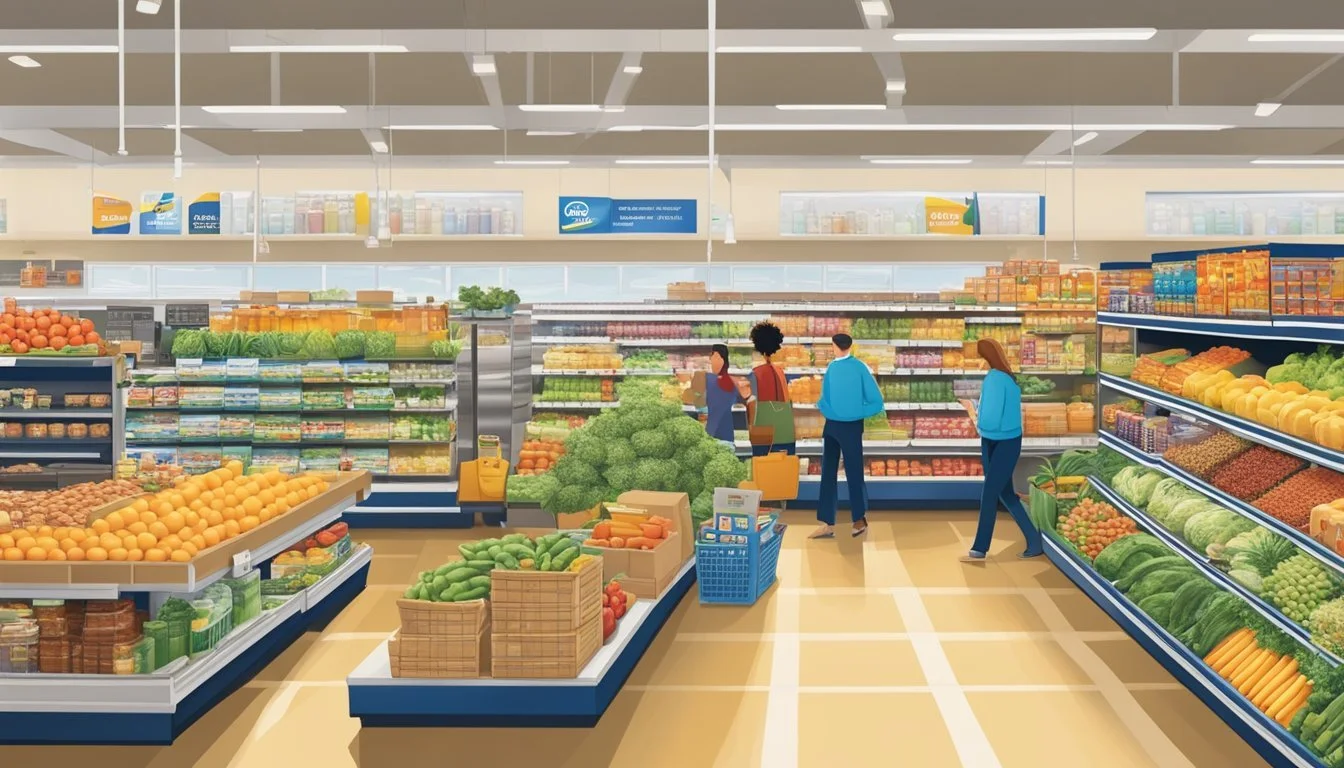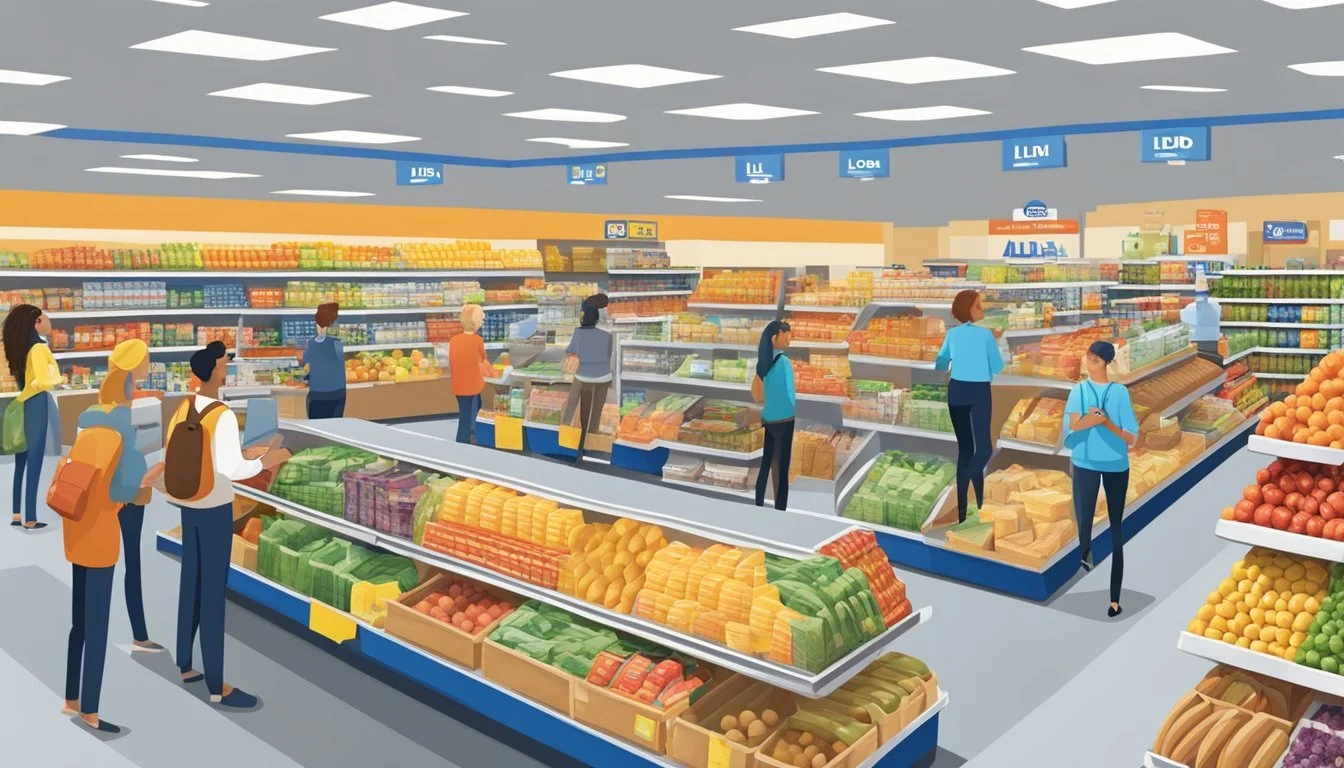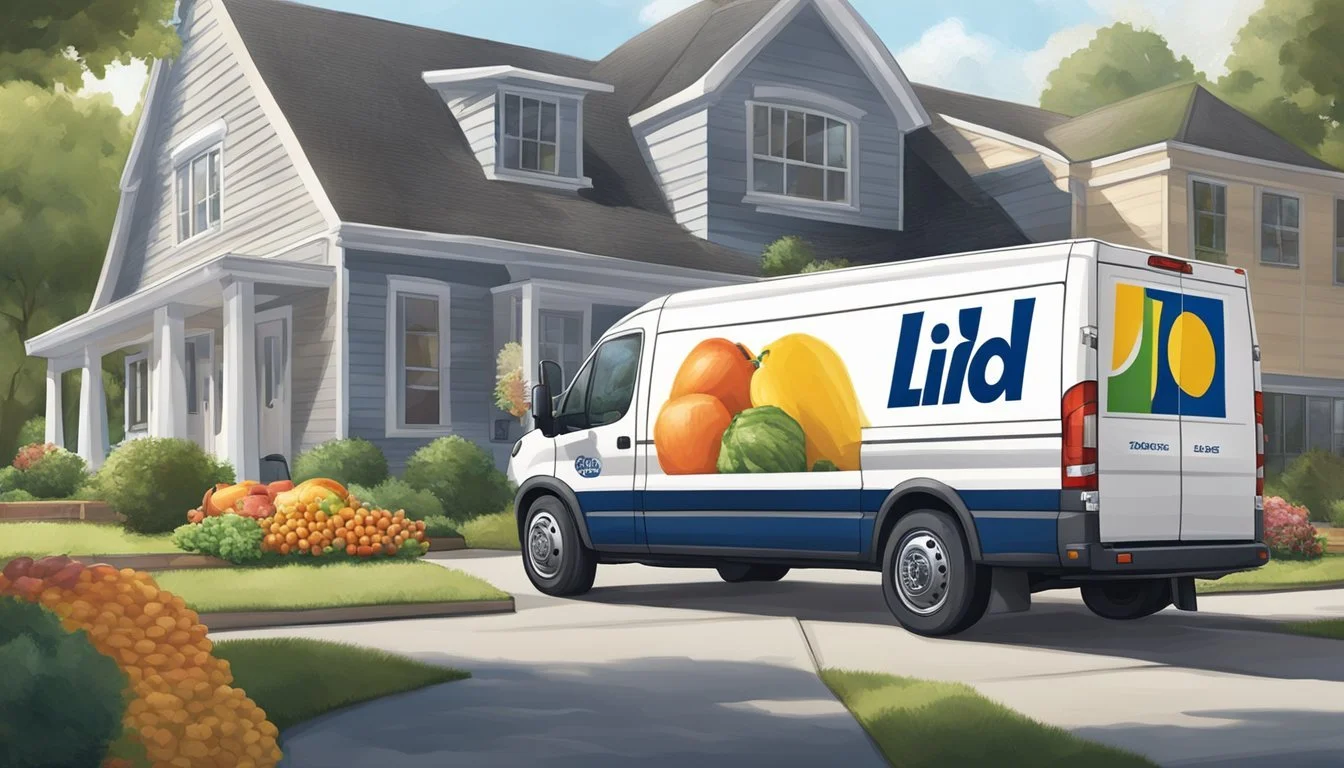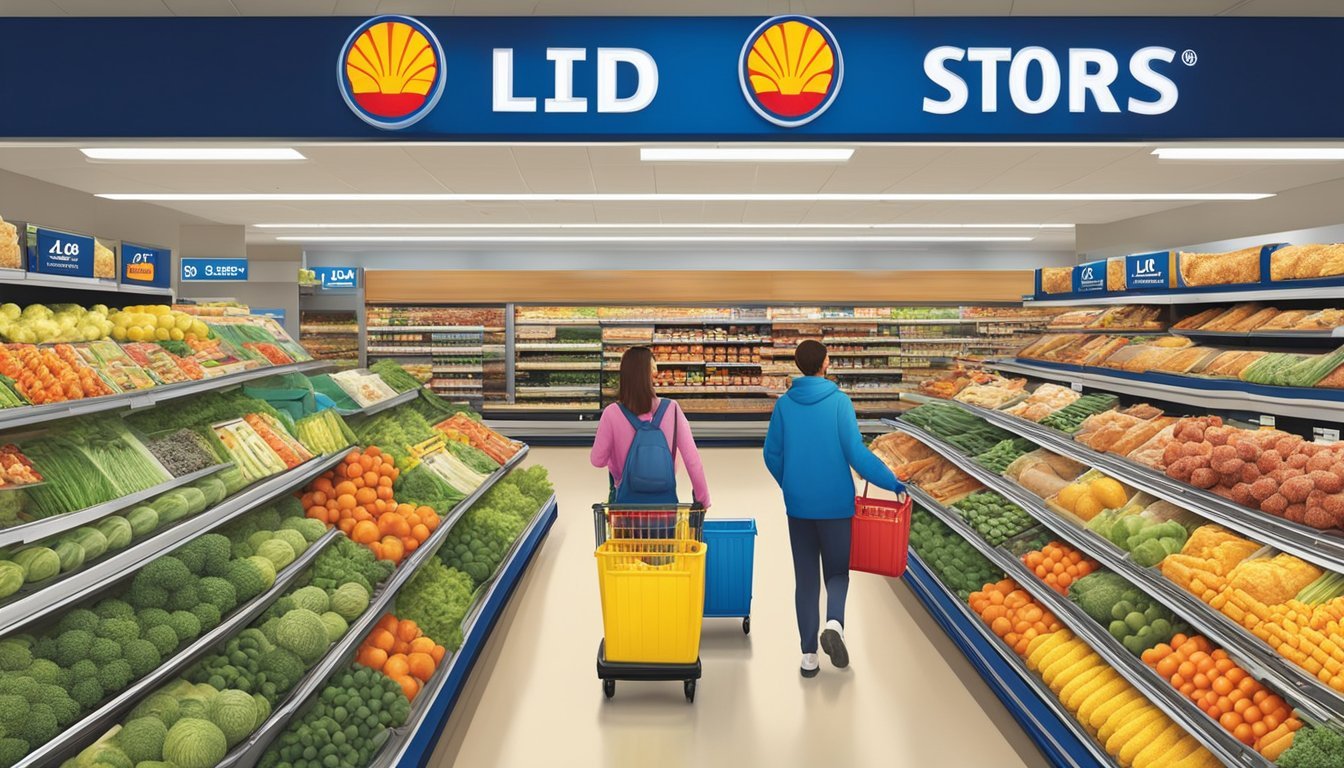Lidl vs Food Lion
Comparative Analysis of Grocery Store Offerings
Selecting the right grocery store can make a significant difference in a shopper's budget and overall shopping experience. With a variety of chains to choose from, consumers often weigh their options based on factors like pricing, product selection, and convenience. Lidl and Food Lion are two prominent grocery store chains that operate in the United States. They cater to a diverse demographic, offering unique shopping experiences that reflect their respective brand identities.
Lidl, with its origins in Germany, is a rapidly expanding chain recognized for its discount prices and efficient store layout. It has garnered attention for its competitive pricing and an assortment of private label brands that often allow consumers to shop at lower prices. On the other hand, Food Lion, as part of the Ahold Delhaize Company, operates a larger number of stores across several states and is known for its wide reach and regular promotional deals. Customers frequently compare the two stores to determine which one provides better value for their money and a more satisfying shopping trip.
In examining Lidl and Food Lion, their store policies, the breadth of products, and the overall shopping environment come into play. Both have carved niches in the grocery market, but they serve their customers in distinctive ways. A detailed comparison of these two grocery store chains could offer insights into their pros and cons, helping shoppers decide which one aligns best with their shopping needs.
Company Overview
Lidl is a leading grocery store chain recognized as a discount grocer. With its origins in Germany, it has expanded internationally and operates numerous stores across the United States. Lidl prides itself on offering quality products at competitive prices, geared towards budget-conscious consumers.
Food Lion, another prominent grocery store chain, primarily operates on the East Coast of the United States. As a regional supermarket, Food Lion emphasizes convenience, variety, and value for customers in its expansive network of stores.
Both Lidl and Food Lion are key players in the American grocery sector and compete with other grocery stores and supermarket chains to deliver affordable groceries and household items. Unlike traditional grocery stores, Lidl follows a leaner retail concept, often displaying products in their original packaging to save on shelving costs, translating to lower prices for consumers.
Food Lion, a part of the Ahold Delhaize group, focuses on a broad selection of goods, including fresh produce and meats, in addition to a range of private label products regarded for their quality. Lidl has similarly diversified its product offerings to include an assortment of fresh foods, bakery items, and a growing selection of organic and gluten-free options.
Both chains are committed to improving the grocery shopping experience, incorporating modern amenities and store layouts designed to meet the needs of shoppers in the United States.
Product Range and Quality
Lidl and Food Lion both offer a wide range of products catering to the needs of budget-conscious customers.
Lidl prides itself on its European-style layout which emphasizes fresh produce, bakery, and deli items. Customers can find a variety of breads and baked goods, made fresh throughout the day, displaying the retailer's commitment to quality. The meat and dairy sections feature both store brand and national brand items, with a focus on value and freshness. Lidl's private label goods cover a broad spectrum of pantry staples and are well-regarded for combining quality with affordability.
Food Lion's selection is rooted in more traditional American grocery offerings. Their stores typically provide a robust produce department that stocks both fresh fruits and vegetables. Their meat and deli counters offer a range of choice for consumers looking for both variety and quality. Food Lion's store brand products are comparable to national brands and aim to give consumers a cost-effective alternative. A particular strength of Food Lion is their bakery section, where shoppers can find a selection of breads, cakes, and other baked goods.
Both chains have made significant efforts to offer quality goods. Food Lion tends to offer a greater variety of brand-name products in comparison to Lidl's heavier emphasis on its private labels. Customers of Lidl enjoy high-quality European-inspired cheeses and meats, often at a more competitive price point.
When considering product range and quality, each store presents strengths: Lidl in freshness and private label offerings, and Food Lion in brand diversity and traditional grocery selections.
Pricing Comparison
When comparing Lidl and Food Lion, it is essential to consider various factors that affect pricing, such as discounts, average pricing strategies, and the overall quality consumers receive for the price they pay.
Discounts and Specials
Lidl is known for its competitive pricing and frequently offers discounts and specials. It operates on a low-price model similar to that of Aldi, aiming to provide value to its customers. Food Lion does not typically offer discount codes, but promotions and specials may be available in-store or through their loyalty programs.
Average Pricing Strategy
Lidl's average pricing strategy leans towards providing lower prices across a broad range of products. In contrast, Food Lion falls under the Ahold Delhaize group and may present a slightly higher pricing strategy while offering a larger variety of products, including more national brands.
Evaluating Cost vs. Quality
While assessing cost savings, the quality of products is integral. Both Lidl and Food Lion present a mix of brand-name and store-label options, with Lidl's Simply Nature emphasizing affordable organic choices. Surveys suggest consumers consider both chains to offer favorable cost-to-quality ratios.
Price Perception Among Consumers
Consumers generally view Lidl as a store where they can find lower prices, aligning with its market perception as a discount grocer. Food Lion's prices are seen as moderate but still affordable, with many consumers balancing perceived value with convenience and selection.
Brand vs. Store Label Pricing
Lidl prices its store label products competitively, often cheaper than national brands such as Jif or Simply Nature, making it an attractive option for savings-focused shoppers. Food Lion also has its store brand line, which typically offers significant savings over national brands.
Comparison With Other Grocery Chains
In comparison to other grocery chains like Walmart, Costco, and Target, Lidl's prices are often lower. Studies show that prices at Food Lion are more expensive than at Walmart but cheaper than specialty grocers like Whole Foods and Wegmans.
Impact of Prices on Consumer Choices
The pricing strategies of Lidl and Food Lion significantly impact where consumers choose to shop. Lower prices at Lidl might attract budget-conscious shoppers, while Food Lion's broader product range may draw customers looking for specific brands or a more traditional shopping experience.
Store Layout and Shopping Experience
When entering Lidl, customers often find an open floor plan paired with bright, descriptive signage guiding them through a variety of food and non-food items. Lidl stores are designed to be navigable with a no-frills layout that focuses on product presentation, often displaying items in their original cardboard shipping boxes to save on shelving costs.
Food Lion follows a more traditional supermarket layout, with clear aisle markers and organized sections. The store size can vary, but they typically offer a larger footprint than Lidl, providing more space for a wider product selection.
Service and employees at both stores vary by location, but Lidl usually operates with fewer staff members on the floor, relying on efficiency and self-service models. This can mean faster checkout but less hands-on help in the aisles. In contrast, Food Lion often has more employees available, which may enhance the service level through more personal interaction and assistance.
Lidl’s Layout
Open floor plan
Bright signage
Self-service focused
Food Lion’s Layout
Traditional supermarket
Aisle markers
More personnel on the floor
Shopper experience may differ at Lidl and Food Lion based on individual preferences for store size, ease of finding products, and the level of customer service desired.
Customer Service and Satisfaction
When it comes to customer service, both Lidl and Food Lion employ staff trained to assist shoppers with their needs. The personnel at both stores are generally perceived to be polite and helpful. They are tasked with maintaining a satisfactory shopping experience, from assisting with product location to handling checkout procedures efficiently.
Employee Training:
Lidl: Employees receive tailored training to ensure shoppers receive informed and efficient service.
Food Lion: Staff training focuses on customer engagement and satisfaction, with an emphasis on building a loyal customer base.
Customer Feedback:
Food Lion and Lidl encourage customers to share their shopping experiences, often using this feedback to improve their service.
Refunds and Returns:
Each store has a specific policy regarding refunds and returns. Customers should always check the store's return policy and ensure they meet all conditions for a successful refund or exchange.
Lidl: Offers a straightforward return policy, aiming to resolve customer issues with a "no quibble" attitude.
Food Lion: Provides clear return guidelines with a process in place for handling customer refunds efficiently.
In the realm of customer satisfaction, several surveys and reports could suggest varying levels of satisfaction between the two. However, specific rankings and statistics are subject to change and may vary by location and time. Customers are encouraged to consider their local store's reputation, which can provide a more accurate reflection of the service they can expect.
Brand Comparison
This section evaluates the distinctive attributes and strengths of Lidl and Food Lion, showcasing how each brand positions itself within the competitive grocery market landscape.
Lidl's Unique Selling Propositions
Lidl establishes itself with a European legacy that reflects in its goods selection, with a focus on affordable prices and quality. It is known for its rotating assortment of non-grocery merchandise, often themed around different cultures or seasons. They place a strong emphasis on their private label brands, which cover a broad range including produce, meat, and bakery items. Comparable to Aldi in its business model, Lidl's streamlined approach to stocking and store layout helps in maintaining low prices.
Food Lion's Market Strengths
In contrast, Food Lion offers a more traditional American grocery experience with a wider variety of branded products. Their prominence in the marketplace is supported by a network of numerous stores, bringing them closer to a diverse customer base. Food Lion has been around for decades, providing familiarity and reliability. They maintain a competitive edge with their MVP loyalty program, weekly specials, and operation in states that Lidl has not yet reached.
Competitive Analysis
When analyzing the competition, Lidl and Food Lion both have strategies to attract customers. Lidl competes with an Aldi-like discount model and simplicity, which often results in lower operational costs that can be passed on to consumers. In contrast, Food Lion, while offering value through discounts, has a more traditional appeal and includes a wide range of national brands. In comparison to larger chains like Walmart, Kroger, or Wegmans, both stores aim to offer uniqueness—Lidl through its European-inspired products and Food Lion through its regional familiarity and customer loyalty programs.
Geographical Presence
When evaluating the geographical coverage of Lidl and Food Lion, one can observe distinct strategies regarding their store locations.
Food Lion, with roots dating back to 1957, predominantly serves the East Coast of the United States, catering to a range of communities. Their presence is especially notable in states like Georgia where they maintain a solid footprint. They've expanded and thrived, positioning themselves as a familiar staple throughout the East Coast corridor, committing to serving a variety of regional preferences.
In comparison, Lidl, which originated in Germany, ventured into the U.S. market more recently, with its first store opening in 2017. Lidl's U.S. strategy has focused on a more gradual expansion, but it has gained ground with a growing number of stores across the East Coast as well. As a newcomer, Lidl presents itself as a competitive option with a European influence, particularly in urban areas and suburbs.
Below is a summary of their geographical spread:
Grocery Store Regions Covered Special Notes Food Lion East Coast, notably in Georgia Well-established in regional markets Lidl Targeting East Coast expansion Relative newcomer with steady growth
Both chains have carved out their territories and continue to vie for consumers, adapting to regional needs and preferences while also reflecting their respective brand identities. Each store’s geographical presence uniquely contributes to its market position and consumer base, without one uniformly overshadowing the other.
Sustainability and Corporate Responsibility
Lidl and Food Lion are two grocery store brands that have taken steps to integrate sustainability and corporate social responsibility into their operations. In assessing each brand's commitment to environmental and social initiatives, it becomes important to look at their concrete goals and achievements.
Lidl, under the larger Schwarz Group, operates over 12,200 stores internationally. In their recent Corporate Social Responsibility (CSR) report, they've set forward ambitious targets focusing on five main areas. Some of the key goals include:
Reducing greenhouse gas emissions: Aim to cut Scope 1 and Scope 2 emissions by 70% by 2030, from a 2019 baseline.
Gender pay gap: Narrow the mean gender pay gap to under 5% by the same year.
Energy-efficient operations: Transition 30% of its product range to more sustainable options.
On the other hand, Food Lion, a well-known brand in the Southeastern United States, also prioritizes quality and sustainability in the goods it offers. The brand is dedicated to providing fresh, quality products and sustainable practices through energy conservation and waste reduction programs. They emphasize the sale of sustainably sourced products and have made commitments to various environmental stewardship programs.
Sustainability Focus Lidl Food Lion Greenhouse Gas 70% reduction target Energy conservation Gender Pay Gap < 5% target Not specified Sustainable Products 30% transition Sustainably sourced
Both brands have shown a proactive approach towards sustainable practices and addressing corporate responsibility within their operations. They demonstrate that quality goods and sustainability are not mutually exclusive, an assertion that is particularly relevant for a customer base that is increasingly environmentally conscious.
Online Shopping and Delivery Services
In the realm of online grocery shopping, both Food Lion and Lidl have adapted to cater to the digital consumer. Food Lion offers an online shopping experience where customers can browse and purchase groceries on their website, which then can be picked up at the store or delivered directly to their homes. The ease of website navigation and checkout process are key differentiators that impact customer preference and loyalty.
Lidl, a supermarket chain with a significant presence in Europe and a growing number of stores in the United States, also provides online shopping options through their website with a focus on affordability and convenience. As Lidl expands, they continue to evolve their digital services to meet consumer demand for quick and easy online grocery shopping.
Supermarket Online Shopping Delivery Service Membership Food Lion Available Offered Not required Lidl Available Offered Not required
Amazon's service, Amazon Fresh, competes directly with traditional grocery stores by offering a robust online shopping experience and home delivery. Orders exceeding $100 are delivered for free with an Amazon Prime subscription, setting a benchmark in the industry for supermarkets like Food Lion and Lidl to aspire towards.
Both grocery store chains are increasingly focusing on streamlining their online platforms to provide a seamless shopping experience. As consumers look for reliable and cost-effective delivery services, the availability and efficiency of online shopping becomes a substantial factor in the consumer's choice between supermarkets. The absence of a mandatory membership for online shopping and delivery services at Food Lion and Lidl is advantageous for attracting a broader customer base who may not wish to commit to subscription fees.
Marketing and Promotional Strategies
Lidl and Food Lion deploy distinct marketing and promotional strategies that reflect their brand positioning and target customer base. Lidl often emphasizes their low-cost leadership, using specials and discounts to attract customers looking for value. They showcase a range of name brands in their promotional flyers, which is a shift from their typical assortment that is 90% private label. This strategy might appeal to customers who are brand-conscious but still want to save.
On the other hand, Food Lion offers consistent pricing and focuses on the overall shopping experience. While not actively offering discount codes, they concentrate on service qualities, ensuring that customers have a positive experience from the store's environment to customer interactions. Signage plays a key role in both stores' strategies, guiding customers to deals and highlighting key products and services.
Each store’s marketing strategy is tailored to different target demographics:
Lidl focuses on simplicity and clarity in their communication, with an undifferentiated targeting strategy aiming for market expansion. This includes straightforward messaging that avoids jargon and keeps their brand promises believable.
Food Lion scores points on familiarity and reliability, promoting community engagement and customer satisfaction above aggressive pricing strategies.
Both brands use an integrated approach of online and offline marketing channels to communicate their value proposition, leveraging mediums such as flyers, social media, and store displays to reach their customers effectively.
Loyalty Programs and Customer Retention
In the competitive grocery store landscape, loyalty programs play a pivotal role in customer retention. Food Lion's MVP Savings Program has demonstrated its strength by ranking second in The Loyalty Report's Best U.S. Grocery Retail Programs of 2021. This loyalty service has been recognized for its effectiveness in engaging customers, likely contributing to their retention and repeat business.
Food Lion MVP Program Highlights:
Rank: 2nd in The Loyalty Report’s 2021 survey
Notable Feature: Personalized savings
Engagement: Strong customer engagement
As for Lidl, while specific details on their loyalty programs are less publicized, they remain competitive in the market with their own measures to ensure shopper faithfulness. Lidl focuses on delivering high-quality products at low costs, a strategy that naturally encourages customer loyalty.
Lidl Strategy for Retention:
Focus: Quality products at low prices
Result: Natural customer loyalty without aggressive marketing
Customer service and return policies also underscore the retention strategies for both chains. With responsive service and fair refund policies, both add a layer of trust to the shopping experience.
Comparing Customer Service & Refund Policies:
Approach: Friendly, helpful customer service
Refund Policy: Fair and customer-oriented
Retailers have noted the challenges that come with retention, especially after price increases. Both Food Lion and Lidl carefully consider these aspects to minimize customer loss and keep their loyalty programs appealing.
Final Verdict
When deciding between Food Lion and Lidl, consumers weigh value and product selection as pivotal factors. Each grocery store presents unique offerings that can influence shopper preference.
Making the Choice for Value
For those prioritizing affordable prices and saving, Lidl often emerges as the more budget-friendly option. Studies suggest that Lidl's presence in the market can lead to lower prices not just in their own stores, but also among competitors. On average, Lidl's prices can undercut Food Lion's, providing consumers with cheaper prices. For example, when comparing frozen vegetable prices, Lidl's were lower than Food Lion's, offering tangible savings on everyday products.
Decision Based on Product Selection
Product selection, on the other hand, involves a broader assessment of quality and variety, particularly within produce, bread, bakery, and meats. Food Lion carries a respectable range of brands and a variety of products, which might appeal to customers looking for specific items. Lidl typically offers a curated selection that balances quality and cost, focusing on their in-house brands which resonate well with cost-conscious, quality-seeking consumers. Hence, for shoppers with particular tastes or preferences in certain food categories, Food Lion may present a more suitable option.










